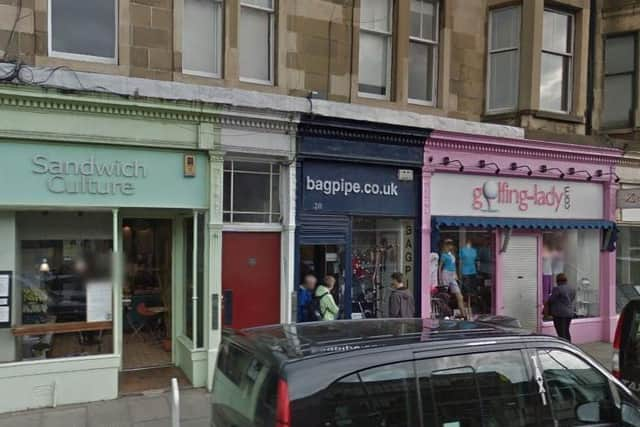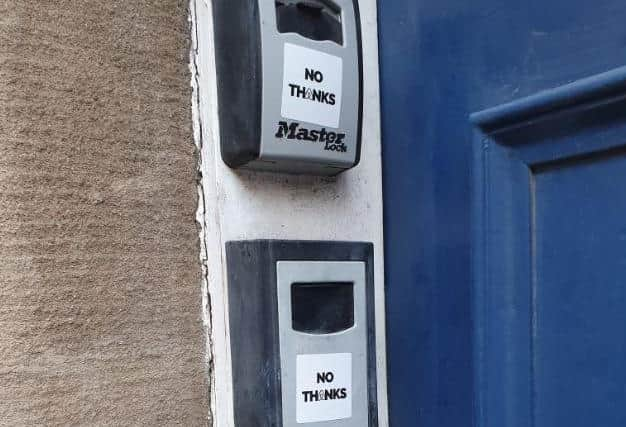Edinburgh 'ghost hotel' told to stop operating as Airbnb crackdown continues
and live on Freeview channel 276
A ‘ghost hotel’ owned by a businessman who had been told to stop running two other short-term lets in the same block last year must stop operating within a month, a government ruling has said.
The flat in 22 Haymarket Terrace had been advertised on Airbnb since December 2018 with customers available to rent out individual rooms in the property, described as being “akin to the traditional BnB format”.
Advertisement
Hide AdAdvertisement
Hide AdHowever, the Scottish Government’s planning and environmental appeals division (DPEA) rejected an appeal from the owner, Ryan O’Rorke, to have a council enforcement notice overturned.


It means Mr O’Rorke must stop operating the business within a month and comes five months after he was told to stop running two other short-term lets in the same tenement block on Haymarket Terrace.
Up to eight people staying at any time
Appeal documents state that the ‘ghost hotel’ - where an unsupervised property has each room let out individually to customers without adhering to the same stringent health and safety and planning regulations required by law - could accommodate up to eight people at a time.
Initially, the flat had only three rooms available but an additional room was added during the course of the appeal.


Advertisement
Hide AdAdvertisement
Hide AdMirroring an actual hotel or guest house, guests had to check in and out at strict times during the day and bedding was replaced on a daily basis or as needed by a professional cleaning service.
The reporter, Gordon Reid, states in the decision notice that the number of guests and number of days available for guests to stay was not “broadly similar” to how the flat would be used as a full-time residential let.
He said: “I find that the frequent movement by up to eight guests a day, seven days a week, with their belongings, at various times, along the communal landings and stairwell as well as the necessity for daily servicing of this top floor flat is a pattern of behaviour and activity beyond that which may otherwise be typical from the use of a residential flat of this size.
“I therefore do not agree that the pattern of use would be broadly similar to that of a mainstream flat being occupied by a permanent or long term tenant.”
Stickers appear against Airbnb
Advertisement
Hide AdAdvertisement
Hide AdThe news comes after stickers were pictured in the city criticising Airbnb and after another flat in the Capital was also told to stop operating as an short-term let, despite only being available over the summer months.
The stickers, which appeared in Tollcross, were stuck on key lockboxes outside a tenement block, stating ‘No to Airbnb’.
In another appeal decision, a Scottish Government reporter found that as many as 36 different people could stay in the flat in 6 Succoth Court within a single week.
Reporter Nick Smith said that despite house rules and the relatively short period of availability, the owner, Mrs Tong Wang, would likely be unable to enforce rules due to not living in the block.
He added the use of the flat as a short-term let was a material change of use and a breach of planning control.
